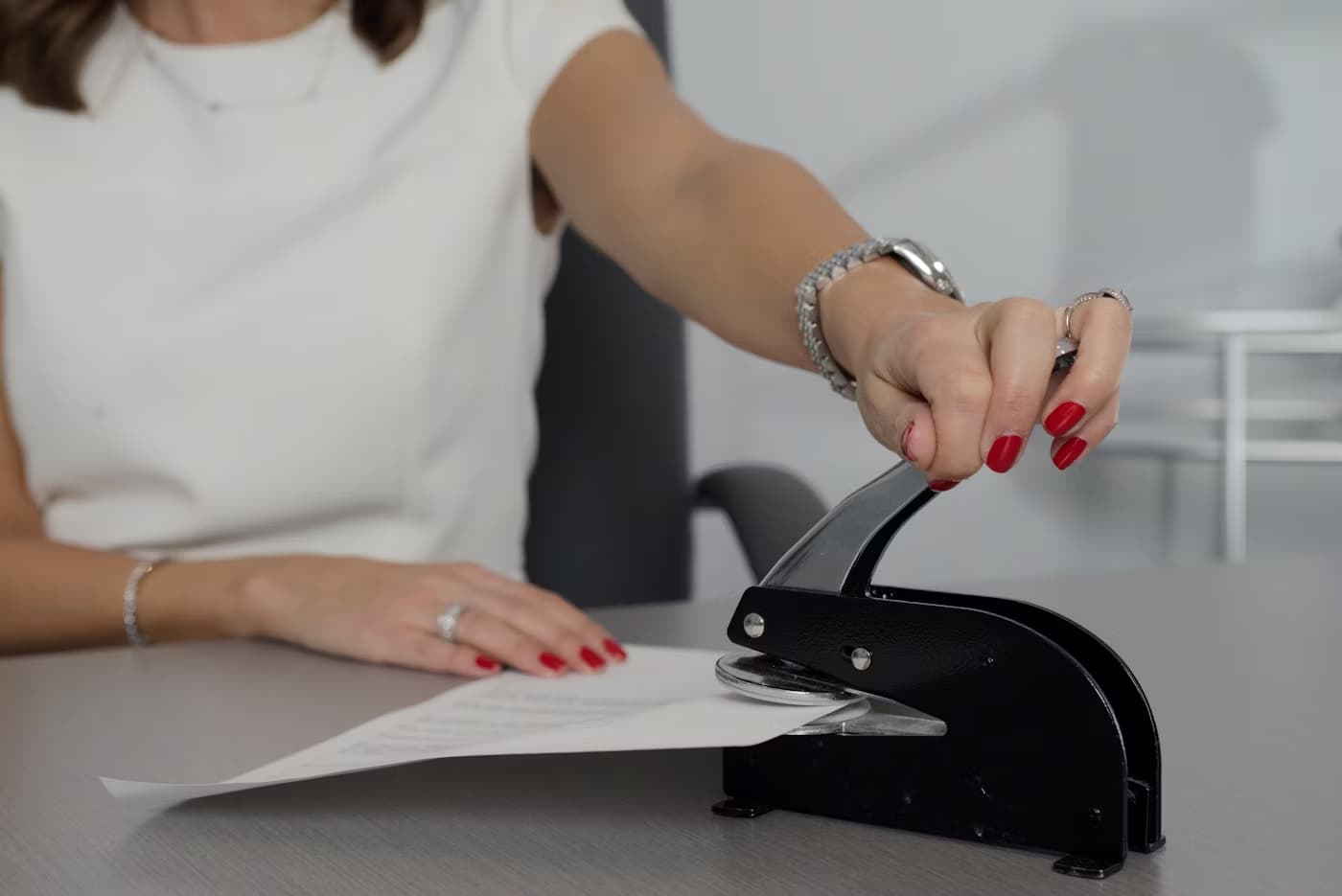
Litigation can feel like a very stressful period in your life, especially if there are family law matters involved with prolonged disputes over finances, property, and custody. If there is a risk of unpaid legal fees, Australian courts do have the power to make a security-for-cost order.
This is a legal mechanism that is designed to ensure that the party bringing the claim or appeal has the financial ability to cover the defendant’s legal fees if they are unsuccessful. Situations where security for costs is enacted are usually complex and are granted at the discretion of the court. To help you best navigate your way through this complex court proceeding, this article explores the key principles that govern security for costs in Australian family law, the factors courts consider when granting these orders, and the practical implications for parties involved in litigation.
The principles that govern the grant of security for costs are well established in Australian family law. In Frazier & Valdez [2016] FamCAFC 163; (2016) FLC 93-729, the Full Court confirmed that whilst the exercise of the discretion depends upon the relevant circumstances of each case, the Court in Luadaka & Luadaka [1998] FamCA 1520; (1998) FLC 92-830 identified a comprehensive (though non-exhaustive) list of factors that may be relevant to an application for security for costs.
Courts do not grant these orders lightly; many critical factors guide their discretion. Based on the factors listed below, each case is meticulously reviewed based on its own merits and unique circumstances to ensure procedural fairness.
Under Section 117(2A) of the Family Law Act 1975 (Cth), courts carefully evaluate whether the party that makes the claim has sufficient resources to cover the defendant’s costs should their claim ultimately fail. This involves carefully analysing both parties' financial circumstances. If the claimant shows a lack of financial resources, it does weigh in favour of granting the order, but does not guarantee it.
If the claim has a corporate plaintiff, Section 1335(1) of the Corporations Act 2001 (Cth) grants courts particular discretion to require security for costs. They only exercise this option when there is credible evidence that the corporate plaintiff will be unable to pay the costs order, leaving the defendant without an alternative.
In short, this safeguard is there to protect the defendant from facing undue financial burdens if a claimant is unsuccessful and unable to meet their obligations.
When evaluating the need for this order, the courts first assess to determine if the claim has merit. This does not mean that there is a complete examination of the evidence or presentation of legal arguments.
The key decision in Frazier & Valdez [2016] FamCAFC 163 clarified that courts might be inclined to order security for costs when there is either a high likelihood of success or a considerable risk of failure. This is done to deter any weak or speculative litigation and helps protect the resources and time of all involved parties.
This provides a barrier by which the claimant should evaluate if their legal position is sound and strong enough to win in court.
When considering the bona fides of proceedings, or in other words, the good faith and honesty of their actions, courts must examine the intentions behind the litigation. The influential judgment in Luadaka & Luadaka [1998] FamCA 1520 clarified that proceedings should be sincere, meaningful, and pursued in good faith.
The court must ensure that the litigation is neither vexatious nor frivolous and not used merely to intimidate, harass or burden the defendant.
Courts have to weigh the potential consequences of granting this order and should aim to strike a balance between protecting parties from unjust financial exposure while not inadvertently preventing genuine claims from reaching a fair hearing.
If the imposed security is too costly, they may be deterred from pursuing a legitimate matter; as such, they will assess whether the financial burden is unjustly silencing one party’s voice. They will therefore exercise their discretion cautiously and try to safeguard meaningful access to justice for all parties involved, irrespective of financial capability.
When a case is of public interest or importance, such as clarifying legal principles or setting a precedent, the court is less inclined to grant a security of costs order. This is because they recognise the societal value of allowing such a matter to proceed.
The timing of the application is also critical, as delays in securing it can be viewed as a strategic manoeuvre and can create unfair advantages or prejudice for the other party. The court can reject the order altogether if the timing disrupts case management or places the respondent at a tactical disadvantage. So if one party is looking to gain this security for costs should act as soon as possible to maintain credibility and fairness.
If the claimant resides outside of Australia or has limited assets in Australia, recovering any legal costs can prove to be challenging. To prevent this, Regulation 42.21 of the Uniform Civil Procedure Rules 2005 (NSW) states that the court can grant a security for costs to safeguard the respondent’s financial position. This also ensures that a party with limited domestic assets cannot exploit jurisdictional gaps to avoid paying legal costs.
Courts can specify a specific sum of money into a court-held account or into a solicitor’s trust account, and it is held till the case is resolved. If the claim is unsuccessful, it will be used to recover the other party’s legal costs.
A reputable financial institution can agree to cover the opposing party’s costs if the claimant is unsuccessful. These are preferred if they include high-value or corporate litigation.
This type of security is often used when the claimant lacks liquid assets and a third party, such as a family member, business partner, or financial backer. They can provide a guarantee and will be accepted if they demonstrate sufficient financial strength.
These claims are uncommon and typically only used when the solicitor is confident that the client can meet the costs or when the solicitor has secured the necessary funds through other arrangements.
Which type of security is appropriate is based on the complexity of the case and the anticipated costs involved.
Though there are many challenges involved, the primary issue would be in cases of non-compliance. In these moments, the proceedings are halted till security is provided or dismissed if it is not given within the provided timeframe. Courts may also interpret this refusal as a lack of good faith and may even result in additional penalties.
If there is evidence that the claimant's financial position deteriorated after the order was made, regulation 42.21 of the Uniform Civil Procedure Rules 2005 (NSW) states that courts have the authority to make additional enforcement orders, including freezing orders, to protect the opposing party's position. This can help prevent the claimant from transferring or disposing of their asset pool and ensures the funds remain available for the future costs order. In some extreme cases, the court can order the seizure of assets or direct payment from available third-party sources.
Security for costs orders are a crucial tool in Australian family law, protecting defendants against the financial risks of unsuccessful litigation. Courts weigh multiple factors when determining whether to grant such orders, including the financial standing of both parties, the merit of the claim, and the potential impact on access to justice.
Navigating security for cost orders can be complex, and understanding your obligations is essential to avoid serious consequences like case dismissal or asset seizure. Seeking expert legal advice ensures that you are well-prepared to manage these legal challenges effectively.
At Hillcrest Family Lawyers, we have extensive experience in handling complex family law matters, including security for costs orders. Our team is here to provide you with strategic guidance and protect your financial interests every step of the way. If you’re facing a security-for-cost issue or need advice on how to proceed, contact us today for a free confidential consultation.


